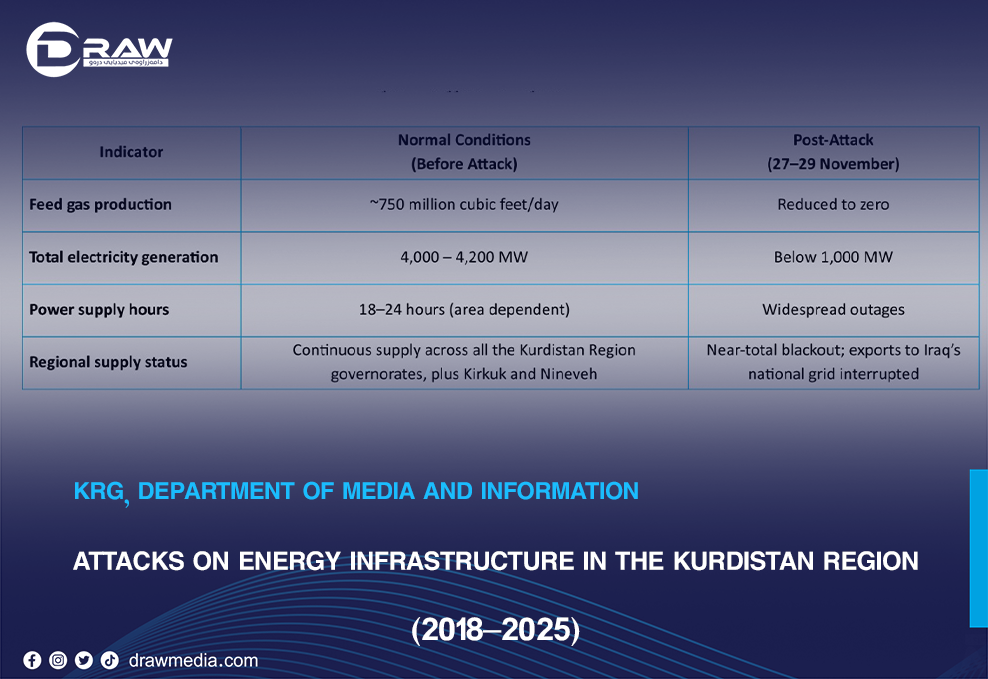Kurdistan Oil Company: A path to resolving oil disputes
.jpg)
2025-01-21 12:57:51
The ongoing disputes over oil resources and revenue sharing between the Iraqi federal government and the Kurdistan Regional Government (KRG) have long been a source of tension, hindering Iraqi national unity and its economic stability.
Historical Background
Oil has been a cornerstone of Iraq’s economy since its discovery in the early 20th century. The development of the oil sector has been closely tied to Iraq’s political trajectory, with periods of nationalization, international partnerships, and conflicts over resource control. Following the 2003 US-led invasion of Iraq, the country adopted a federal system that granted regions, including Kurdistan, significant autonomy.
Under the 2005 Iraqi Constitution, the Kurdistan Region gained considerable authority over its natural resources. Article 112 and Article 115 of the constitution allow the KRG to manage all the oil fields discovered after the constitution’s ratification. However, disputes arose over the interpretation of these provisions, particularly regarding revenue-sharing mechanisms and the rights to sign contracts with international oil companies (IOCs).
Ongoing Strains And Conflicts
Baghdad insists on central oversight of all oil exports and revenues, arguing that oil is a national resource that should benefit all Iraqis. In contrast, the KRG maintains that its constitutional rights grant it autonomy over the extraction and export of oil within its territory.
These disagreements have often led to budgetary disputes. For years, Baghdad has withheld budget allocations to the KRG, accusing it of failing to meet production-sharing commitments. Meanwhile, Erbil has accused Baghdad of undermining its economic stability by using budget allocations as a political tool.
The situation reached a breaking point in 2022 when a ruling by Iraq’s Federal Supreme Court deemed the KRG’s oil and gas law unconstitutional. While the Iraqi federal government claims sovereign authority over all oil production and exports, the KRG has independently managed its oil sector, exporting crude via Turkiye’s Ceyhan port and bypassing Baghdad. The 2023 arbitration ruling by the International Chamber of Commerce (ICC) in favor of Iraq, which temporarily halted oil exports through Ceyhan, underscored the urgency of finding a sustainable resolution.
These continuous tensions were addressed by Kurdistan Region President Nechirvan Barzani during his meetings with Iraqi officials in Baghdad this month.
Barzani's visit to Baghdad aimed to resolve ongoing disputes over salaries, entitlements, and oil exportation—a process currently stalled due to high extraction costs for companies operating in Kurdistan.
Speaking to Shafaq News Agency, parliamentary finance committee member Moeen Al-Kadhimi confirmed that the committee met with representatives from Iraq’s Ministry of Finance to discuss budget implementation for 2024. “The approved budget for 2024 is 211 trillion Iraqi dinars, but actual spending has been 156 trillion dinars so far, with revenues totaling only 137 trillion dinars. The deficit has been covered through loans,” Al-Kadhimi explained.
He stressed the importance of a realistic 2025 budget, suggesting it should not exceed 150 trillion dinars. Once the revised budget law is approved by parliament, adjustments will account for Kurdistan's oil extraction and transportation costs, which range from $6 to $16 per barrel.
In parallel, the parliamentary oil and gas committee has been working on amendments to the budget law that pertain to Kurdistan's oil sector. Committee member Basem Al-Gharibawi emphasized that any changes must comply with Iraqi law and the constitution.
Proposals under discussion include amendments to Article 12 of the budget law, which would facilitate the formation of a "General Company for Kurdistan Region Oil." This entity, modeled after existing state oil companies, would operate under Iraq’s Ministry of Oil and oversee the extraction and exportation of oil in Kurdistan. “This proposal aims to resolve longstanding tensions between Baghdad and Erbil,” Al-Gharibawi said.
What Could Be Done Next?
In light of these challenges, the idea of establishing the Kurdistan Regional Oil Company (KROC) has gained traction as a potential solution. Modeled after Iraq’s state-owned oil companies, such as the North Oil Company and South Oil Company, KROC would operate under the supervision of the federal Ministry of Oil. This structure aims to reconcile the constitutional autonomy of the KRG with Baghdad’s demand for central oversight.
The proposed company would handle the extraction, transportation, and exportation of oil from the Kurdistan Region, ensuring transparency and compliance with federal regulations. By creating a direct link between the KRG and the federal government, the KROC could help rebuild trust and establish a framework for equitable revenue sharing. Additionally, it could address concerns from IOCs about legal and financial stability, encouraging renewed investment in Kurdistan’s oil sector.
Potential Challenges And Implications
While the establishment of KROC presents a pathway to resolving disputes, significant challenges remain.
Politically, it requires consensus between the KRG and Baghdad, as well as legislative amendments to Iraq’s budget and oil laws. These negotiations are likely to be contentious, given the deep-seated mistrust between the two sides.
Economically, the success of KROC hinges on its ability to balance the interests of multiple stakeholders, including the federal government, the KRG, and IOCs. Ensuring transparency in revenue distribution and operational efficiency will be critical to its credibility. Additionally, KROC must address technical challenges, such as the cost of oil extraction in Kurdistan, which is higher than in other parts of Iraq due to the region’s geology.
Source: Shafaq News




.jpg)


.jpg)

.jpg)